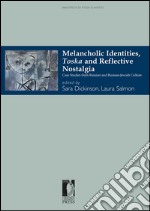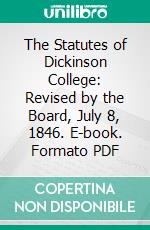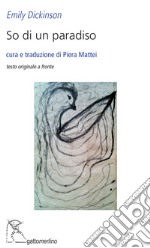Dickinson eBooks
eBooks di Dickinson
Melancholic Identities, Toska and Reflective Nostalgia: Case Studies from Russian and Russian-Jewish Culture. E-book. Formato PDF Dickinson Sara - Firenze University Press, 2015 -
This book examines the feeling that we often refer to as ‘nostalgia’ from the perspective of writers and artists located on the (imperial, Soviet, and Post-Soviet) periphery of Russian culture who regard the center of the culture from which they have been excluded with varying degrees of longing and ambivalence. The literary and artistic texts analyzed here have been shaped by these author’s ruminations on social and psychological marginalization, a process that S. Boym has called ‘reflective nostalgia’ and that the authors of this volume also refer to as ‘toska’. Sara Dickinson, associate professor of Russian at the University of Genoa, has published on Russian travel writing, problems of identity, women’s writing, the history of emotions, and Nabokov. Laura Salmon, full professor of Russian at the University of Genoa, has authored five books and more than one hundred scholarly publications that focus on Russian-Jewish culture, humor studies, and translation theory.
The Statutes of Dickinson College: Revised by the Board, July 8, 1846. E-book. Formato PDF Dickinson College - Forgotten Books, 2017 -
The text books in these branches, and the order in which they shall be studied, shall be prescribed by the Faculty, subject, however, at all times, to the supervision of the Trustees.
So di un paradiso. E-book. Formato PDF Dickinson Emily - Gattomerlino Edizioni, 2020 -
Occorre notare quanto unica sia questa poesia, nella sua spavalda identità femminile. Un gesto quotidiano come quello di piegare e riporre gli abiti, o un telo, diventa l’immagine focale di due delle liriche qui presentate: «I’ve known a Heaven, like a tent / to wrap its shining yards» (243) e nella 342: «Till summer folds her miracle / as women do their gown». Emily è donna, seducente e sedotta, anche rispetto alle forze della natura, con un mare, questo sì immaginato, che la insegue, le bagna i vestiti, le accarezza le caviglie (520). Fantasia straordinaria questa liquida immensità che, giunta nella città dei solidi, con un inchino si ritrae. Cavaliere gentile con la sua dama è la Morte stessa. Emily ne parla, usando il pronome maschile nella lirica 712, dove è immaginata una galante cattura a domicilio, su una carrozza dall’andatura lenta, quasi da parata.


